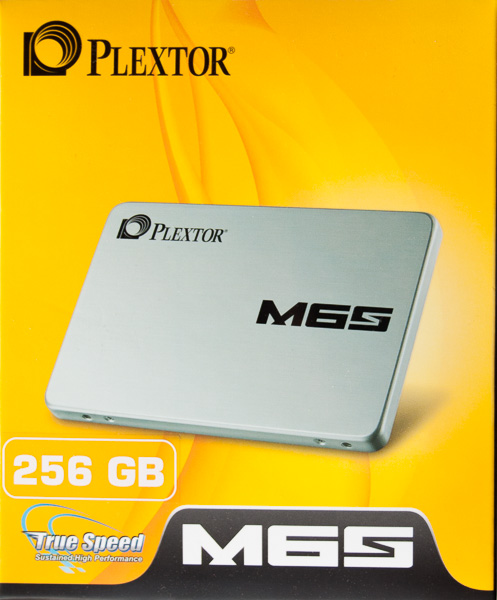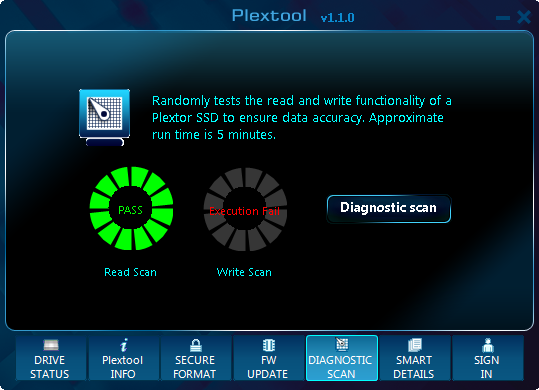Plextor M6S And M6M SSD Review: Revving Another Marvell Engine
Plextor is launching two new SSDs under its M6 banner. The M6S and M6M lean on Toshiba's A19 flash and Marvell's updated 9188 silicon. Together, both components (plus some custom firmware work) should augment value and speed in a couple of form factors.
Plextor Iterates Its Line-Up With New Components
Plextor began with its M1 drive family a long time ago. As it transitioned to the M2s, it adopted SATA 6Gb/s thanks to Marvell's classic 9175 controller. The M2 gave way to the M3, the M3 turned into the M5, and now we're seeing the first M6es. All of that is to say Plextor's nomenclature is indicative of evolutionary steps forward. The M6 brings the previous generation up to 2014 standards. It swaps in an updated controller, the latest Toggle-mode flash, and continues a trend of refining firmware to keep enthusiasts as current as possible with the latest fixes and optimizations.
And that's alright by us. The M6M and M6S aren't Plextor's flagship SSDs, yet they offer M5 Pro-like performance, a feat made more impressive by the transition to Toshiba's 128 Gb Toggle-mode flash.
Our exercise in stress testing wasn't a walk in the park, though. I spent almost 300 hours collectively benchmarking the M6M and M6S. The sole hitch involved our specialized TRIM metric; both drives simply refused to work with ULINK's DriveMaster 2012 suite. Now, taking measurements with the DM2012 isn't anything like the rest of our tests. It basically takes over the SATA controller and has its way with the entire storage stack.
Plextor's contenders were well-behaved through the rest of our benchmarks, and I don't have any reservations about using them in the real world. But if we handed out numerical scores, I'd need to dock both M6 drives for this one compatibility issue that couldn't be worked around.
Although we're unable to present our TRIM test results, Plextor still deserves recognition for its dedication to taking familiar components and adding the company's own optimized spin. Every time it revises its basic SSD formula, there are improvements. Granted, the M6S and M6M target the mainstream space, so they don't serve up a long list of value-added features. You don't get power-loss protection, Opal 2.0 or eDrive encryption support, or fancy accessories, though you can download the Plextool utility straight from Plextor's website. Better still, if you track down an older version of the software, you can secure erase your drive through Windows 8. That's a capability most tools don't offer.
Plextor's engineers clearly known their way around Marvell's controllers and Toshiba's Toggle-mode NAND. As a result, they're able to nudge the M6 family close to Crucial's M550 platform, which earned our praise in The Crucial M550 SSD Review: Striking Back With More Performance and Adata Premier Pro SP920 SSD: From 128 To 1024 GB, Reviewed. When you compare the 256 GB-class offerings, Plextor definitely makes a statement.
The big question mark is pricing. Plextor uses $250 as a suggestion for its 256 GB model. But before you write that off as ridiculous, MSRPs are rarely reflective of what you find on the street. Real-world pricing should be quite a bit lower. How much so? That's impossible to say; as of press time, the drives aren't available. I have to imagine that they'll need to show up under $200 to compete. After all, Crucial's 480 GB M500 is selling for $240 straight from the company store. Plextor's 256 M6S readily competes with that SSD's performance. The same holds true for a match-up with Samsung's 840 EVO. Now we just want to see Plextor stand up to the value offered by those strong entries.
Get Tom's Hardware's best news and in-depth reviews, straight to your inbox.
Current page: Plextor Iterates Its Line-Up With New Components
Prev Page Results: Power Consumption-
bjaminnyc I know there are slight performance differences between models and manufacturers, for the home user the discrepancies matter very little other than lifespan. It all comes down to price point for non-commercial application, not sure where this really fits in the product stack.Reply -
WithoutWeakness The Marvell 88SS9188 controller in the M6S is only capable of addressing 4 NAND channels at a time whereas the 88SS9187 (Crucial M500, Plextor M5Pro) and 88SS9189 (Crucial M550) are capable of addressing a full 8 channels. I would expect the Plextor M6Pro to use the newer 88SS9189 found in the M550 to be able to address 8 channels of NAND and support up to 1TB drives using 128Gbit NAND.Reply -
Ipatinga Clean looks... ok update for the M5S... here hopping M6P will have something on its sleeve performance wise. I liked the Plextor software (its like a bonus for some people... ).Reply
But I still have the Samsung 840 EVO on my list, after all, when the dust settles, they both perform very well in a notebook for a regular joe, but the EVO has the price to beat.
Since my Crucial m4 is not dead... I will wait... mainly for prices to go even lower so I can get a higher capacity model instead of the best of the best. -
cryan Reply13069953 said:The Marvell 88SS9188 controller in the M6S is only capable of addressing 4 NAND channels at a time whereas the 88SS9187 (Crucial M500, Plextor M5Pro) and 88SS9189 (Crucial M550) are capable of addressing a full 8 channels. I would expect the Plextor M6Pro to use the newer 88SS9189 found in the M550 to be able to address 8 channels of NAND and support up to 1TB drives using 128Gbit NAND.
So we weren't able to get confirmation from Plextor or Marvell, but it's probably the case that the 9188 is a cut down four channel version of the 9189. It's all the more annoying, because this is the third review in a row with new Marvell silicon but no actual info from Marvell.
We have a pretty good idea of this from looking at the 9174 4 channel used in the UltraPlus vs the 8 channel 9175 used in.... pretty much everything else ever made... that the 9188 is a four channel version of the 9189. But we don't know how many CEs per channel it has, or much else for that matter.
However, we do know Plextor's M6 Pro will have a 1 TB version, also with A19 flash. Plextor reps told me as much at the 2013 Flash Memory Summit. That was last August though, so I think there have been some delays -- either with Marvell, Toshiba, or both.
Regards,
Christopher Ryan -
cryan Reply13071551 said:Why not compare the Samsung EVO 840?
If you're referring to the 128 KB sequential and 4 KB random performance, I'm trying to keep those clean. I'd much rather throw down on matchups like this in more important metrics. However, with TRIM testing out this go around, the EVO v. M6 angle got downplayed. It's an oversight.
Regards,
Christopher Ryan
-
cryan Reply13073455 said:I really wish write speeds would actually make a jump.
For sequential writes, you can't do much better than 500 MB/s. The fastest M6M/M6S hits 440 MB/s, and so there just isn't much room left to grow unless you switch to PCIe-based storage or add a couple drives in RAID.
Regards,
Christopher Ryan
-
michaelrhaley Great article! I'd like to see a summary comparison of your top ten drives listed in Tom's best SSDs for the money using your new benchmark. Most important is your omission of Samsung 256G Pro which has been your leader for 8 months cited now as "face meltingly fast". Any performance benchmark must include the Samsung leader. Love to see this right away from you!Reply
Sincerely, Michael -
kalmquist Currently, the 128GB M6S is selling for $100 on Newegg, the 256GB M6S is selling for $165. The 512GB M6S is not listed.Reply
Hard to justify buying these over the Samsung 840 EVO ($85 and $154). Actually, for most uses my first thought would be the Crucial M500 ($75 and $120). The M500 doesn't win on either performance or power consumption, but it is good enough that these will not be major issues for the typical user.

